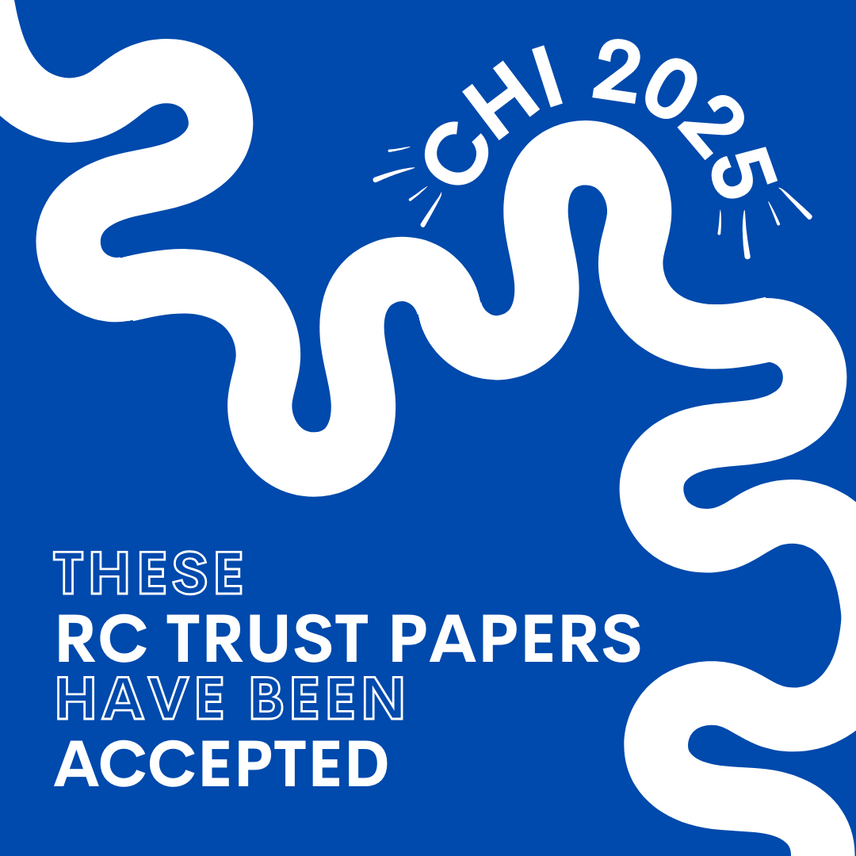11.04.2025
Five of our researchers' papers have been accepted for the CHI Conference on Human Factors in Computing Systems 2025.

The CHI conference on Human Factors in Computing Systems is the premier international conference of Human-Computer Interaction. It takes place from Apr 26, 2025 to May 1, 2025 in Yokohama, Japan. We are delighted to announce that five of our researchers' papers were accepted for CHI 2025, namely the following:
Annika Bush:
Two of her papers have been accetpted in the category late-breaking work.
1. short paper: “Twin Transition or Competing Interests? Validation of the Artificial Intelligence and Sustainability Perceptions Inventory (AISPI)”
She developed and validated the 'Artificial Intelligence and Sustainability Perceptions Inventory' (AISPI). It's a novel 13-item instrument that measures how people perceive the relationship between AI and sustainability, revealing two distinct dimensions: "Twin Transition" (synergies) and "Competing Interests" (tensions).
2. Short paper in collobaration with Amin Alibakhshi: “Bridging the Early Science Gap with Artificial Intelligence: Evaluating Large Language Models as Tools for Early Childhood Science Education”
They evaluated four leading Large Language Models (GPT-4, Claude, Gemini, and Llama) on their ability to generate preschool-appropriate scientific explanations. The LLM outputs are based on real scientific texts from biology, physics and chemistry and were evaluated by 30 trained nursery teachers.
Steffen Becker:
3. full paper: “An Open-Source Environment for the Controlled Study of Human Aspects in Hardware Reverse Engineering”
To better understand how humans identify hidden threats or intellectual property theft in microchips, they developed ReverSim - an open-source environment for controlled studies of chip analysis tasks. By making these tasks accessible to non-experts and linking performance to cognitive abilities, ReverSim enables large-scale studies that can strengthen chip security and improve analyst training.
They also provide a live demo of their tool and the open source code via GitHub.
Emma Kallina & Prof. Jat Singh:
Their paper has been accetpted in the category late-breaking work.
4. short paper: “Mapping the Tool Landscape for Stakeholder Involvement in Participatory AI: Strengths, Gaps, and Future Directions”
This work emphasises the implementation gap in stakeholder involvement that contributes to responsible AI efforts: despite growing calls for such stakeholder involvement, tools that support this in practice appear very limited and focused on some actions only while many aspects are not at all supported. It is essential to highlight this disconnect so that the community can react in a timely and informed manner in order to match the increasing calls for stakeholder involvement with actionable tools that support its implementation.
Magdalena Wischnewski:
Her paper has been accetpted in the category late-breaking work.
5. short paper: “Attributing Mental States to Non-Embodied Autonomous Systems: A Systematic Review”
People oftentimes ascribe mental states such as "thinking", "deciding", or "knowing" to technologies. In this systematic review, she summarises previous work on the determinants and consequences of such mental state attributions.
Category
- News
- Publication
- Event